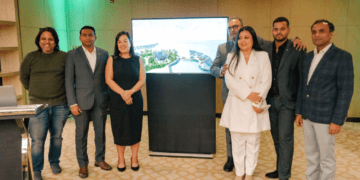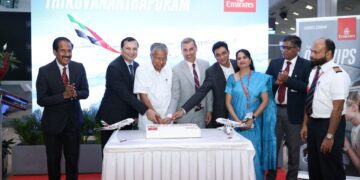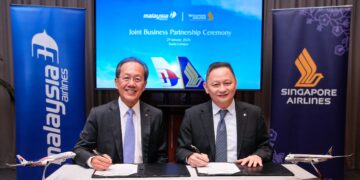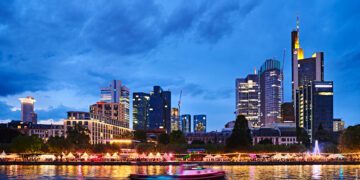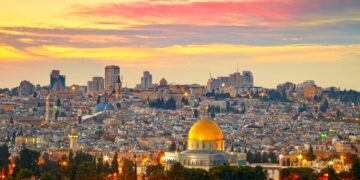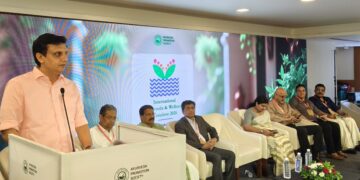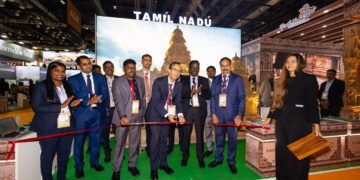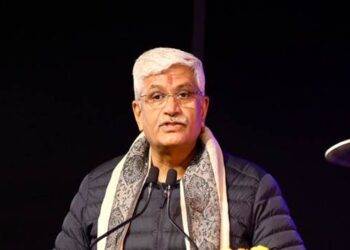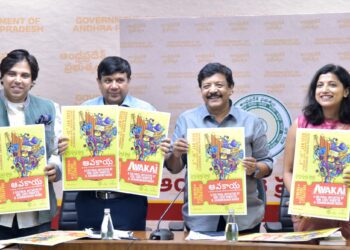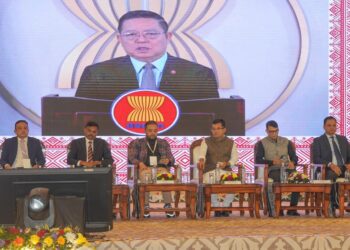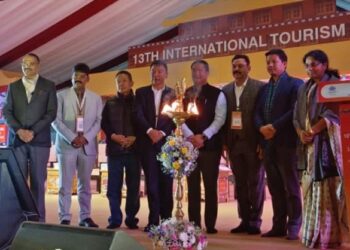The Ministry of Tourism has an all new vibe to it, thanks to the presence of two dynamic lady bureaucrats, who have redefined the way a lot many of the industry people viewed tourism. Ms. Meenakshi Sharma, Director General, Ministry of Tourism, Government of India, is one such dynamic officer who believes that there is immense potential in Tourism in India and that women can contribute majorly to its success and growth. Here’s a look at her journey and her message for the younger aspiring women out there…
Priyanka Saxena Ray
Born and brought up in Delhi, Meenakshi Sharma belongs to one of the oldest families of Delhi – almost 350 years old – which gives her a perspective of Delhi that very few people have. Delhi is a place where everyone is welcome. This state has been a capital, a melting pot of cultures, but has also seen a fair amount of aggression and migration. “We look at things from a different perspective. For us, Delhi is the real hub of Ganga-Jamuni culture. The city has its own flavour and I never really lived outside it until I joined the services,” she shares.
Surprisingly, the younger Meenakshi was never very keen on joining the services. However, she always knew that whatever she will do in life will have to be both – challenging as well as satisfying. She did her graduation from SRCC followed by Delhi School of Economics and then specialisation in International Business and system analysis. “My mother always used to say that my sons need not work but my daughters have to work. Women should not be seen as a ‘support system’ always. All of us, men women alike, have a purpose of living, which must be lived and enjoyed. I am not saying that people who do not work in public area are not performing but everyone has a calling and each individual should be exposed to that calling – they should be allowed to make that choice,” elaborates the lady.
Meenakshi Sharma joined the audit and accounts service in 1988 and feels that she has been lucky and privileged to get the chances she got in life. In 31 years of service, she has worked in various divisions within the Comptroller and Auditor General of India, then Ministry of Youth Affairs, Ministry of Personnel and now Ministry of Tourism for last 4 years. Married for over three decades, Ms. Sharma has a daughter who is a lawyer and working with an Austrian firm.
Sharing her thoughts on India being a “safe” and “women-friendly” destination, she feels that there are two ways of gauging whether a destination is safe or not – one is the factual way and the other is the perception. “So factually speaking India is a safe destination, however, there is something more that we can do to make people feel that it is safe. A whole lot of work can be done to make India safer and make women feel safe in India. Unfortunately, the work with tourist police hasn’t been a very successful move. We at MoT have been undertaking training of police staff, immigration people, guides – the idea is that everyone should align with the theory – Atithi Devo Bhava. MoT does a lot of sensitisation and state governments also do a lot of sensitisations programs. Tourism ultimately has to be a state issue. MoT cannot do everything. It can only give guidelines and frameworks,” explains the DG.
These days, there is much talk regarding the ‘Dekho Apna Desh’ campaign, which propels people towards domestic tourism. According to Meenakshi Sharma, those who wish to truly explore the unexplored in India should follow the two way trail – destinations that are rich in architectural legacy and then those who enjoy abundant natural beauty. “India should be very proud of the architectural heritage it has – we have things which are over 2000 years old and still in relatively good shape. They will not remain forever so enjoy and appreciate them. Especially those in the various nook and corners – the lesser known architectural marvels. Secondly, destinations that have abundant natural beauty, whether in North East, J&K, Ladakh, Kerala and Karnataka coastal – people have not explored it. In India, only 10-15 places are popular for domestic travel. You like beach – go to Goa, you like Hills – go to Shimla or Mussoorie. But there is so much to see beyond these destinations. Also, this is the time we should be thinking from the climate change angle – treat carefully, walk lightly – look up the options which are not thronged by people – go to lesser known places – you will also enjoy more and the nature is also protected more,” she elaborates.
She further went on to explain that one of the reasons for this lack of knowledge is that people do no research much before taking a vacation, just as we do before travelling abroad. Meenakshi Sharma explained how the Incredible India website can act as a one stop knowledge hub as it has information on 165 destinations and more than 400 attractions.
During the IATO Convention in Kolkata last year, Ms. Sharma has categorically told the hoteliers present on the occasion that most of the Hotels in India are not very women friendly. Services are very good and even the presence of women staff is enough, but it lacks few things. First is the lack of a full-length mirror, which is such a basic thing. All women feel that a full length mirror with 4 feet of depth is a must for a women traveller otherwise you cannot see yourself complete, especially if they are draping the saree. Secondly, sometimes, the mini-fridge in the rooms have no items of particular interest to a woman. Either it has beer or junk food but never enough healthy options. No diet namkeen or low calorie food, keeping women dietary preference in mind.
Concluding by sharing a strong advice for the women in the travel trade, she says, “My advice to the women today would be – don’t give up on your dreams. Never take a short cut because a crisis has emerged. Look at the bigger picture. If you have an issue which you think is a roadblock, take a step back and then move forward. This industry is a very good industry for the women and we should see more women come to the fore. There are women working in this industry – they should be more visible – come forward – make their presence known as it will give confidence to the people who want to travel.”







